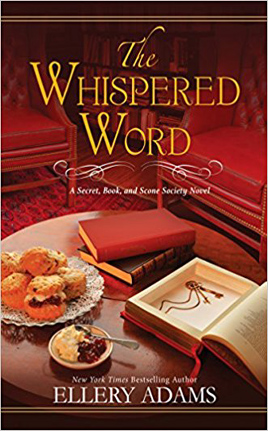This is the 3rd mystery from Fiona Barton, an award winning English journalist. I haven't read the first 2 (The Widow and The Child) but NPR's reviewer asserts they are better constructed and more readable. I would also agree with that reviewer that there is too much extraneous stuff that does not contribute to the central mystery of the story--what actually happened to the two young women who went to Thailand for a post graduation trip and then were found dead in in a burned hostel in Bangkok? The narrative POV moves relentlessly between so many characters that, even though the chapters are clearly labeled with dates and narrator roles, it's hard to follow the storyline. Apparently reporter Kate Waters and DI Bob Sparkes, two of the main voices in this book, have appeared in previous works. Waters begins by investigating the young women's failure to get in touch with their parents at a pre-arranged time. The police are initially less interested, but as time passes with no word, they put out a missing persons alert to the Thai police and are soon notified that two bodies were found in the aftermath of a fire in a seedy part of the city. Now the investigation is into what DI Sparks and his assistant, DS Zara Salmand, quickly determine was murder not an accidental death as the Bangkok police had claimed. When it turns out that Waters' older son, Jake, was staying at the same hostel as the young women, she is taken off the story, but of course continues to investigate on her own in order to prove that her son didn't commit the murders. Even though this book did not draw me into any of the characters, I would still be tempted to read her earlier works.
The NPR review provides much more detail on the plot; the Washington Post has a much more positive take on this "nail-biting tale of missing teens and the parents who worry for them." Kirkus concludes, “'No one is to be believed ever,' seems to be a major takeaway. Oh, and P.S., don’t let your kids run wild in Thailand. This has the potential to be a thoughtful thriller with an interesting setting, but Barton is too willing to cater to expectations—short chapters, familiar clues, and stereotypical villains." The New York Journal of Books focuses on one of the main themes of the book, which is "a story about mothers, how fierce their love can be when their children’s lives are in jeopardy and how it surpasses right or wrong, even in death."
The NPR review provides much more detail on the plot; the Washington Post has a much more positive take on this "nail-biting tale of missing teens and the parents who worry for them." Kirkus concludes, “'No one is to be believed ever,' seems to be a major takeaway. Oh, and P.S., don’t let your kids run wild in Thailand. This has the potential to be a thoughtful thriller with an interesting setting, but Barton is too willing to cater to expectations—short chapters, familiar clues, and stereotypical villains." The New York Journal of Books focuses on one of the main themes of the book, which is "a story about mothers, how fierce their love can be when their children’s lives are in jeopardy and how it surpasses right or wrong, even in death."




